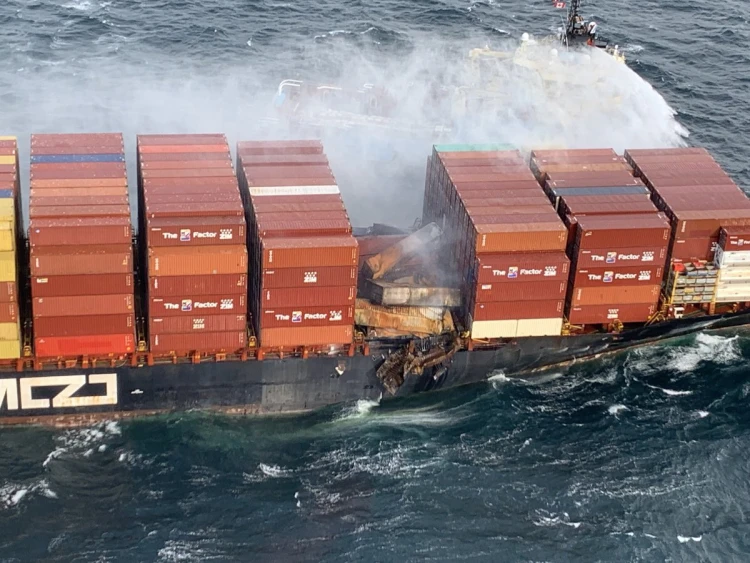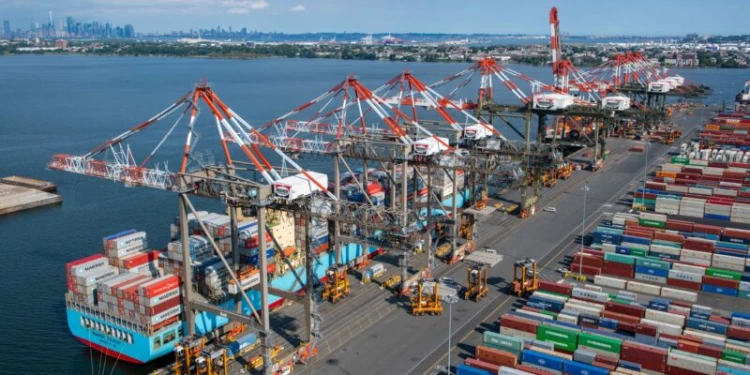Britain faces fresh supply chain crisis with world’s worst waits – while Omicron strikes China
Wednesday, 20 April 2022
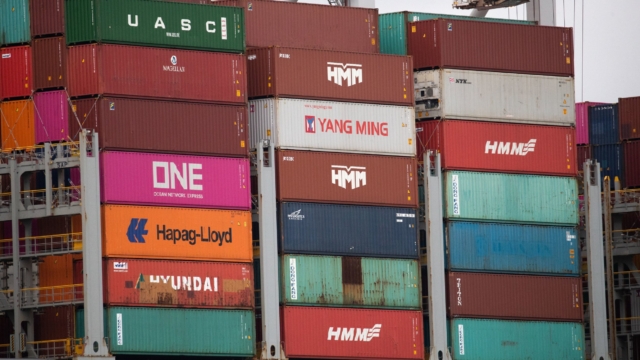
Data obtained by i shows the UK has been particularly badly hit by the logistics snarl-up caused by factors from the pandemic to Brexit
Britain last year had the world’s longest “dwell time” for shipping containers – the period between the arrival and departure of a cargo box, including its transportation from the port and emptying at a warehouse. The UK recorded a figure of 51 days, compared to 50 in America and 25 in Germany. In China, the figure was just five days. (Photo: Andrew Matthews/PA Wire)
Britain is facing a renewed supply chain crisis fuelled by the world’s longest turnaround times for processing shipping containers and a growing threat to China’s manufacturing and logistical capacity from the Omicron variant.
Hopes that the pre-Christmas logjam which clogged key container hubs for months would recede as factors including the UK’s lorry driver shortage ease have been dented by renewed Covid outbreaks and continuing delays at ports, leading to a renewed risk of consumer shortages.
The owner of cut-price clothing retailer Primark this week said it was continuing to see delays with shipments and at ports as it cut 400 jobs in the face of rising costs, while shortages continue to persist in commodities from semi-conductor microchips to white goods.
Data obtained by i shows the UK has been particularly badly hit by the logistics snarl up caused by factors from the pandemic to Brexit, with it taking almost two months for cargo boxes carrying goods from the Far East to be processed through the supply chain, from delays at ports to shortages of warehouse space and truckers.
The shipping industry study, which recorded average “dwell times” for containers of 51 days in the UK last year compared to 50 days in the US and 25 days in Germany, coincided with a warning from Maersk, the world’s largest container shipping company, that 2022 has “not started as we had hoped” with congestion and long delays at key ports.
Maersk said waiting times for vessels to berth at Felixstowe, Britain’s biggest container port, last week stood at up to 10 days, the highest in Europe, though it is understood that figure has since improved considerably with no vessels waiting at anchor on Thursday.
There is growing concern that disruptions will worsen as China increasingly grapples with Omicron outbreaks in its major cities.
MORE NEWS : China Floats First 24,000 TEU Boxship Built for Evergreen
Five of the largest port cities in China – Dalian, Shanghai, Ningbo, Tianjin and Shenzhen – have imposed targeted lockdowns in recent weeks, prompting concern that more widespread Omicron cases could cause disruption to shipping in the country responsible for a third of global manufacturing.
Until now China has managed to contain Covid with a policy of draconian lockdowns and movement controls but as the country prepares for the Winter Olympics next month there is evidence that the increased transmissibility of Omicron is challenging Beijing’s pandemic strategy.
Container xChange, the Hamburg-based cargo broker which produced the container turnaround data, said a survey of more than 800 maritime cargo companies showed just under two thirds now believe 2022 will see global supply chains remain clogged or deteriorate further. The company, whose research was co-funded by the German government, said the delays in returning shipping boxes was “stymying the recovery of global ocean supply chains”.
One senior executive with a major shipping line told i: “We are very much at a tipping point. If [Omicron] manages to take off in China, even in a small way, then there is the potential for very significant disruption to supply chains. It does not take much imagination to see what the effect of large-scale shutdowns of factories, transport networks and ports would be. The system is already under stress.”
Russ Mould, investment director at stockbroker AJ Bell, said other key providers of outsourced manufacturing such as India and Vietnam were also experiencing partial lockdowns. He said: “Production lines are idle or running below capacity, ports are clogged with backlogs of containers. It is hard to see how matters are going to improve in the very near term, at least unless higher energy prices and interest rates start to take a toll on consumer demand.”
Prior to the emergence of the Covid variant hopes had been high that the global logistics system, which in 2021 saw a sevenfold increase in the cost of sending a container from China, would slowly begin to normalise.
But UK and European ports continue to operate close to capacity, with Felixstowe dealing with record numbers of containers and British companies warning that the forthcoming imposition of customs checks and regulatory regimes due to Brexit will add to soaring costs.
The Suffolk port said it was investing heavily to increase capacity for the largest container vessels. But in the meantime, UK manufacturers and retailers are scrambling to secure alternative capacity to bring goods from the Far East, with containers originally destined for the major UK ports being offloaded on the Continent instead and taking up to four weeks to arrive via road or on smaller vessels.
The Port of Tyne this month welcomed it first direct sailing from China when a vessel carrying containers ordered by retailers seeking to bolster stock levels docked in South Shields.
A spokesman for the British Ports Association said: “Most [ports] are dealing with increased volumes and are extremely busy but functioning normally. This situation is expected to continue throughout 2022. Recent disruption in China from lockdowns may cause additional volatility this year.”
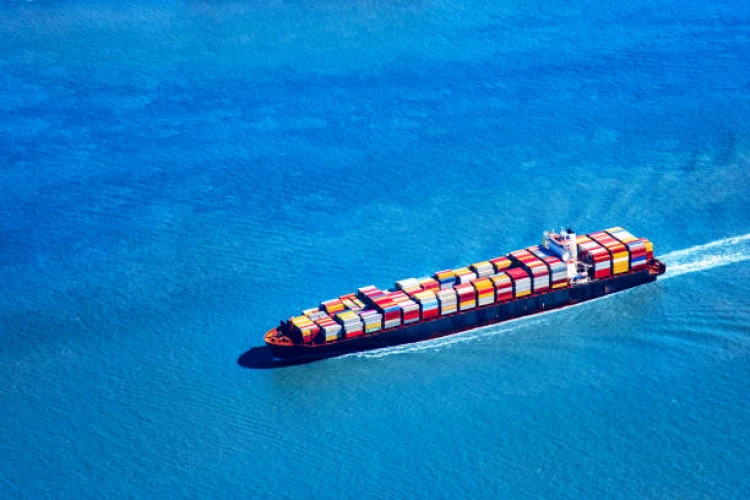
06 January 2025
Hurricane Beryl trims cargo volumes in Houston and New Orleans
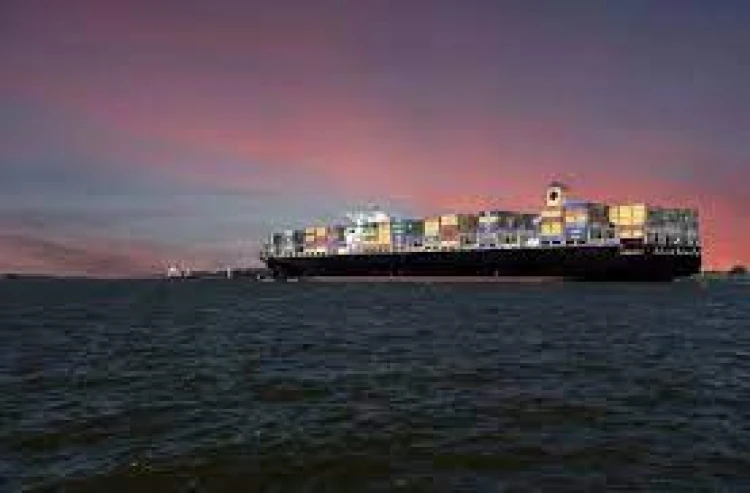
25 January 2025
Container freight rates tumble

08 February 2025
